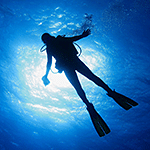 Author Michael Menduno, who first coined the term technical diving, is also known for the following quote: Every dive is a decompression dive; every dive is a solo dive. This is likely one of the truest statements in diving.
Author Michael Menduno, who first coined the term technical diving, is also known for the following quote: Every dive is a decompression dive; every dive is a solo dive. This is likely one of the truest statements in diving.
This article has its genesis in a thread appearing on the Scuba Diving Accidents and the Lessons They Teach page on Facebook. The topic was solo diving and, as you can imagine, there were no shortage of comments. Some people seem to think there is nothing wrong with solo diving while others feel it is the final step in the downfall of western civilization.
Who is right? I’m not even going to attempt to answer that one. (I don’t even know if there is a right answer.) No matter what you think, the fact is, diving by themselves is something many divers choose to do. This is not likely to change any time soon.
My chief concern is that, if you are going to argue this one way or the other, you should at least be honest and accurate. I cringe when I hear divers say, “I never solo dive.” In reality, they do — they simply don’t acknowledge the fact because they have other divers with them.
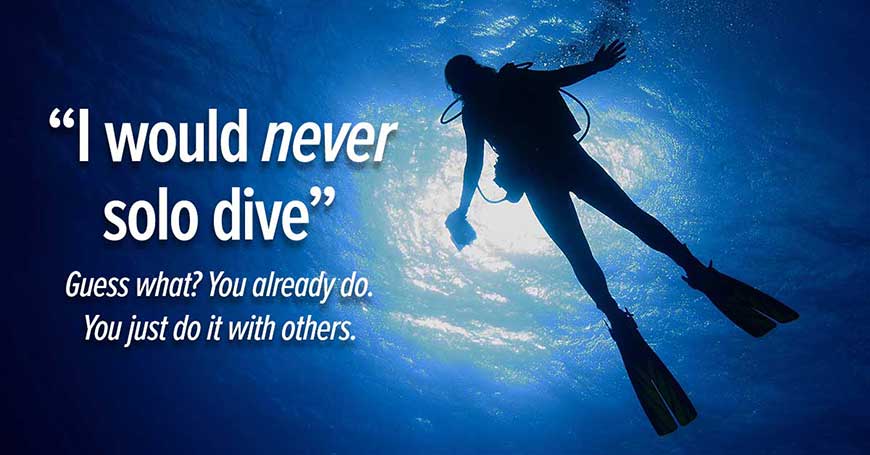
So, in the final analysis, it’s not a matter of whether or not you should solo dive, but rather whether you should solo dive by yourself or with others. The one thing you should never do is buddy up with someone who is not as self-reliant as you are (unless, of course, you are a professional and getting paid for it). We’ll delve into the dangers of diving with someone who is not self-reliant shortly.
Everyone offers a solo diving course
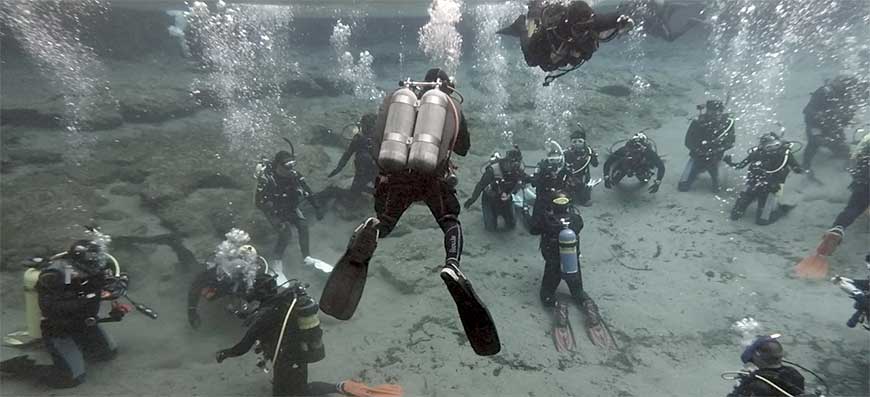
Does your training agency offer a Solo Diving course? It does — it just may not go by that name. In most agencies, this course is called Open Water Instructor. Think about it:
- When diving by yourself, most of your attention is focused on your own survival.
- When diving with students, you are primarily focused on their survival…and no one is looking out for your safety, as any assistants you may have are also focused on the students first.
A dive instructor who can’t ensure his own survival will almost certainly be unable to ensure his students’ survival.
The hierarchy of risk
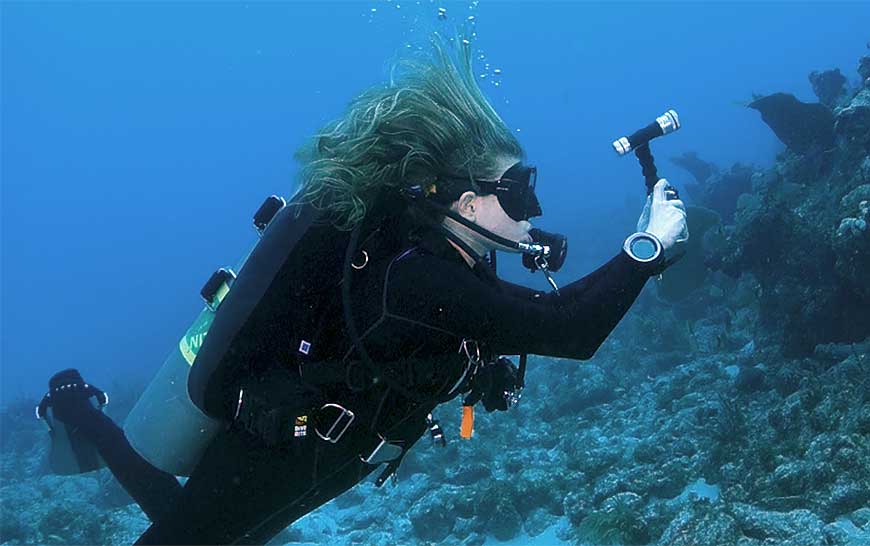
The problem with discussions of solo diving is that they assume all divers are equally competent. They aren’t. There is actually a hierarchy of risk, based on competence. It goes something like this:
- Greatest risk: An incompetent diver who is diving by himself.
- Second-greatest risk: Two incompetent, buddy-dependent divers diving together (and possibly dying together).
- Third-greatest risk: A competent, self-reliant diver diving by himself.
- Least risk: Two competent, self-reliant divers functioning as a well coordinated team.
That, of course, is a broad generalization. There are many additional variables that come into play in any individual situation. What is significant is that a competent, self-reliant diver diving by himself can easily be safer than two incompetents diving together.
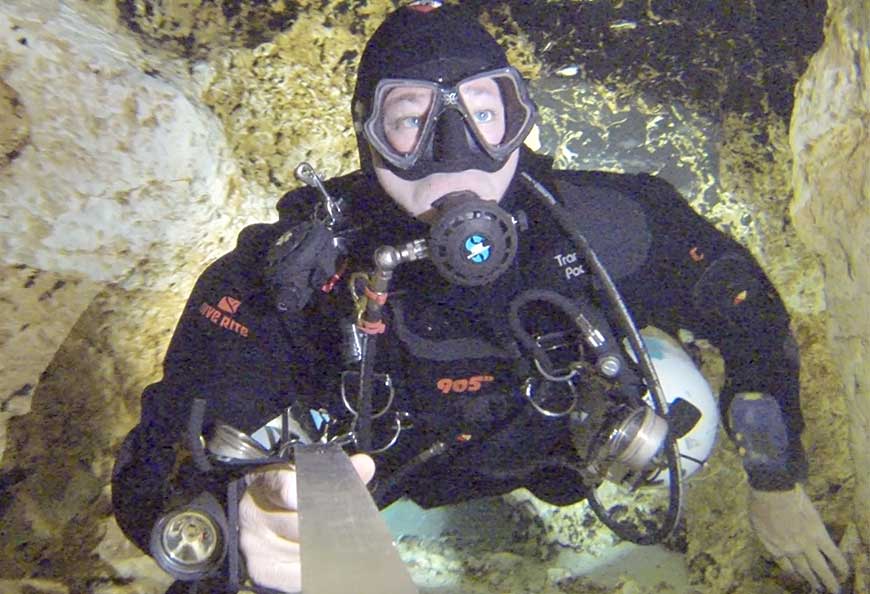
So, if you want to jump into one of these online discussions regarding the merits of solo diving (or the lack thereof), at least be honest. Odds are you, too, are a solo diver. You just solo dive with buddies.
